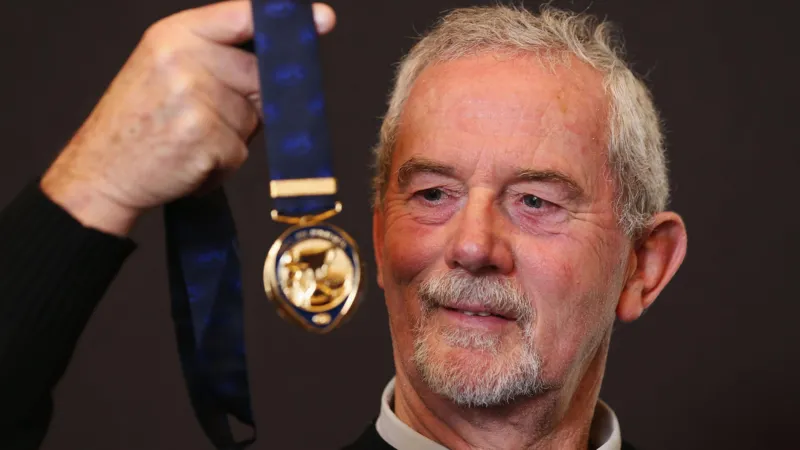Robert Walls, one of the most iconic figures in the Australian Football League (AFL), has passed away at the age of 74 after choosing to use Victoria’s voluntary assisted dying laws. A towering presence in the game for more than five decades—as a player, coach, and commentator—Walls leaves behind a remarkable legacy etched in the hearts of fans and football history.
Born in 1950, Robert Walls made his AFL debut for the Carlton Football Club in 1967 at just 16 years old. Over the course of his 14-year playing career, he appeared in more than 200 games for the club and played a pivotal role in three premiership victories in 1968, 1970, and 1972. His skill, determination, and tactical intelligence quickly elevated him to legendary status at Carlton.
After hanging up his boots, Walls transitioned into coaching, a move that would see his football influence span another 16 years. He coached Carlton to a premiership in 1987, reinforcing his status as a dual premiership contributor—both as player and coach. Walls later took the reins at the Brisbane Bears (later the Brisbane Lions) and the Richmond Tigers, contributing to the development and strategic foundation of those clubs as well.
Robert Walls: A Life Dedicated to Australian Rules Football
He retired from coaching in 1997, but his connection to the game never wavered. For the next 25 years, Robert Walls remained a fixture in the AFL landscape as a respected media commentator and pundit. His insightful analysis, straightforward delivery, and deep understanding of the game made him a fan favorite on television and radio.
Walls was diagnosed with acute lymphoblastic leukaemia in 2023, a rare and aggressive type of blood cancer. After battling the illness for more than two years and spending over 250 nights in hospital, he made the personal decision to end his life through Victoria’s voluntary assisted dying laws.
These laws, introduced in 2019, allow terminally ill patients to access medication to end their lives, provided they meet strict criteria and receive approval from two independent medical practitioners. Walls chose this path with the support of his family, who described his final moments as peaceful and in line with his wishes.
“Having battled cancer for more than two years, Robert did it his way and chose to end a fight that had seen him spend more than 250 nights in hospital during the past two years,” the Walls family said in a statement. “He died on Thursday morning, surrounded by his children, in his apartment overlooking the Melbourne Cricket Ground.” The AFL community has been quick to pay tribute to Robert Walls, with former teammates, players he coached, colleagues in the media, and clubs all acknowledging his immense contribution to the sport.
Carlton Football Club, where Walls’ football journey began and flourished, described him as “one of our game’s great servants” in a heartfelt message posted on social media platform X. “We mourn the passing of a true Blue legend. Robert Walls was the embodiment of the Carlton spirit—as a premiership player, premiership coach, and a proud lifelong member of our club.”
The club also announced it will honor Walls with a tribute during an upcoming match at the Melbourne Cricket Ground, the very stadium he could see from his home in his final days.
A Legacy Beyond Football
Beyond his accolades on the field and in the coach’s box, Robert Walls was admired for his integrity, intellect, and love for the game. As a commentator, he brought clarity and context to matches, helping generations of fans understand and appreciate the nuances of Australian Rules Football.
He also faced personal tragedy with grace. His wife, Erin, passed away from cancer in 2006. Despite the loss, Walls remained committed to his family and continued his professional pursuits with characteristic resilience. He is survived by his three children and partner, Julie.
Few individuals have had as profound an impact on the AFL as Robert Walls. His name is synonymous with courage, leadership, and excellence. From winning premierships as a teenager to mentoring young talent as a coach and later becoming a voice of reason in AFL commentary, Walls was truly a lifelong servant of the game. In the end, he left on his own terms—an act as courageous as any he displayed on the field. The AFL world will remember Robert Walls not just for what he achieved, but for the passion, humanity, and dignity with which he lived.
Source- BBC

